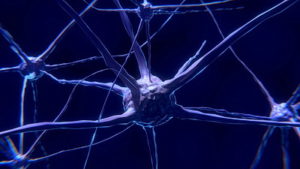
The human brain, the single most important organ in the body distinguishes itself from all other living species. The way the brain works is a wonder and has not been fully understood by scientists to this day. Indeed, every achievement of human civilization since the beginning of time has become possible because of this three-lb lump of tissue.
Many neurological studies of cognitive activity have been researched; however, the underlying chemical and non-chemical processes responsible for its functioning are still a mystery. Nevertheless, scientists are gradually digging out new information about the brain, helping us to understand this marvelous biological creation of nature. As 2018 is about to end, it will be apt to discuss some of the notable scientific discoveries and developments that have recently been discovered.
Discovery of a New Brain Cell

The brain is made up of specialized cells called neurons. There are many different types of brain cells and it’s rare that scientists come across an entirely new class of neurons, since the majority of neurological studies are confined to other mammals, particularly rodents.
However, in 2018 a new discovery was made, a neuron called ‘rosehip neuron’. The brain cell is named after the fruit because of its shaggy appearance. Rosehip neurons were discovered in the part of the brain that is responsible for vision and hearing. It has also been found that this cell is not present in other mammals. Scientists have yet to find out the exact function of this new and unique neuron.
The Brain is Not Bacteria-Free
For a long time, scientists used to believe that the brain was naturally a bacteria-free environment. However, a recent study that still needs additional scientific validation has concluded otherwise. It’s also interesting to note that this discovery was unintentional. It occurred when researchers were analyzing the effects of schizophrenia on post-mortal brains. The researchers actually detected unidentified rod-shaped objects during brain imaging. Further inspection revealed that they were actually bacteria.
The bacteria were found near the barricade that separates blood from the brain fluid, which implies that they might be part of the blood-brain barrier. However, nothing conclusive can be said about the role of bacteria in the brain. If the presence of bacteria is further proved, then it will definitely change the course of future neurological studies.
Magnetic Particles have a Purpose in the Brain
Scientists first discovered the presence of magnetic particles in the human brain in 1990. However, their role in the brain is still not clear. Many scientists believe that neuronal magnetic particles have a physiological purpose. On the other hand, some neurologists contested that traces of magnetic particles in the brain were caused by lingering environmental contaminations.
This year, a group of scientists have mapped out the exact location of these particles in the brain. The researchers carried out the mapping of six different brain specimens to conclude that the magnetic particles are concentrated at particular sites in the brain. The patterned presence of magnetic particles at least makes one thing clear i.e. they have a biological purpose in the brain, which is a good thing in this politically charged climate!
It is worth noting that magnetic particles have been discovered in other animals as well. Some experts suggest that the presence of magnetic material in the brain might help animals with navigation. But this is just a hypothetical inference and no concrete evidence currently supports this claim.
Role of Virus in the Construction of Human Consciousness
In a study this year, scientists found out that a viral gene is also responsible for intracellular communication between neurons responsible for the high-order thinking process.
Scientists have named this gene ‘Arc’, which contains genetic information and transmits it from one neuron to the other. It has also been found that the Arc gene mutation usually occurs in people suffering from different neural disorders.
The next objective of researchers is to find out the exact genetic information that is relayed by this viral gene and how it got into the brain in the first place. Scientists will also try to establish the link between the Arc gene alteration and neural disorders.
Stress Physically Affects the Brain
The harmful effects of prolonged stress have been known for a long time. However, a study conducted in October this year suggests that stress also has physical implications for the brain. The researchers analyzed the brain volume of 2,000 healthy adults to find out that those with high cortisol levels have a slightly smaller brain volume.
Cortisol is a hormone released into the bloodstream when a stressful condition materializes and subsequently, puts the body into a fight-or-flight response. Stress is a regular physiological phenomenon that helps humans safely steer out of difficult and harmful situations. However, chronic stress that is highlighted by a constant spike of cortisol is detrimental to human health.
The brain has Noise Filters
You might have noticed that we don’t hear each and every footstep of ours. Research conducted on mice this year suggests that the brain develops its own filter to cancel out what it perceives as noise. It has been found that after the brain has discerned something as noise, the motor neurons (responsible for movement) direct auditory neurons (responsible for hearing) to block their own signals. Even though the study was conducted on mice, scientists believe that the same can be said for the human brain too.
So, scientists keep on discovering new things, but the above discussion shows that a lot of it has yet to be found, especially regarding the underlying functioning of the brain. The discovery of new neurons also implies that we still don’t know the entire anatomy of our brains.
